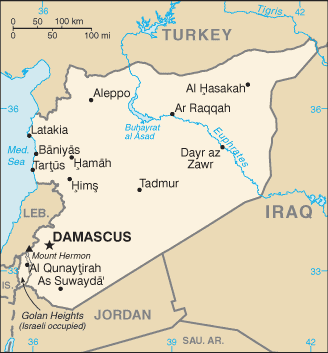The Obama administration and its allies have begun serious discussions about potential military intervention in Syria, as political approaches have failed to stem the conflict.
 Almost 70 countries and international mediators met in Tunis two weeks ago to consider possible non-military intervention to put a stop to the violence of the Assad regime and of the Syrian opposition, but impasse has led to growing willingness to consider military options.
Almost 70 countries and international mediators met in Tunis two weeks ago to consider possible non-military intervention to put a stop to the violence of the Assad regime and of the Syrian opposition, but impasse has led to growing willingness to consider military options.
Under consideration is directly arming opposition forces, sending international troops to guard a “safe zone” for the rebels, or bombing the President Bashar al-Assad regime’s air defenses and degrading the military capacity to continue the conflict. The latter would amount to a regime change, as it did in Libya.
Any such U.S.-led intervention would be illegal under international law, since Russia and China vetoed resolutions at the UN Security Council amounting to that. No authorization for such action has been granted, or even sought, by the U.S. Congress, so it would illegal under the Constitution as well. As has been seen in previous “humanitarian interventions,” powerful states gleefully ignore the law if they feel the need to act.
Aside from the legality, further militarizing the conflict in Syria could be to the detriment of Syrian civilians. The Syrian opposition is not cohesive, so getting aid to the intended people is nearly impossible. The opposition contains elements of extremists and perhaps al-Qaeda, which may indirectly end up receiving any direct military aid. Both sides have committed crimes and, as was seen in Libya, supporting an armed insurrection empowers disreputable fighting groups while marginalizing prospects for political peace.
Military intervention carries a high probability that the violence will consequently escalate, spread across the region, and embroil the United States in another deadly, protracted war in the Middle East. It is also likely that ulterior motives are at play: Washington wants to end the Assad regime and possibly replace it with a more obedient tyranny that will no longer align itself with Iran, the number one target among imperialists and foreign policy elites.


